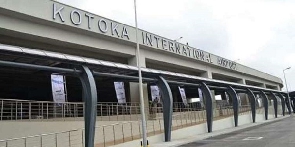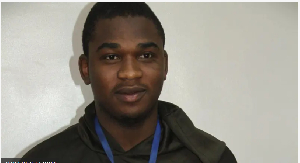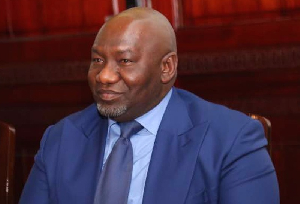... ban on social functions last 4 wks of semester ... Semester activities need review and approval
The Academic Board of the Takoradi Polytechnic has banned all social functions organized by students during the last four weeks of each semester.
The board has also recommended that student associations should submit their semester activities for a review and approval at the beginning of the semester since unapproved functions would no more be allowed to take place on the campus. Any student or students who go contrary to the new regulation would severely be punished.
The principal of the polytechnic, Dr. Nicholas Aidoo-Taylor, who announced this at the 11th matriculation ceremony that was held at the polytechnic last Friday, said the new regulation is meant to compel students to devote much of their time to their books.
According to the principal, though the Takoradi polytechnic is one of the best polytechnics in the country, the examination malpractices by students has all of a sudden become a ritual in the polytechnic.
He said last year alone 20 students were involved in these malpractices and were accordingly dismissed by his administration.
Dr. Aidoo-Taylor further told the large gathering, which included some members of the polytechnic council, that after the affected students had been dismissed the academic board set up a committee to investigate causes of the examination malpractices on campus by students.
"One prominent finding by the committee was that students spend too much time on social functions organized by the various associations and spend little time for academic work.
As a result, students cheat in the examinations because they do not prepare adequately," he said.
According to the principal, it was based on the committee findings, among other things, that the academic board decided to ban all social functions organized by the students during the last four weeks of each semester.
Touching on the year's admission, Dr. Aidoo-Taylor said though the National Council for Tertiary Education has mandated each polytechnic to increase its annual enrolment by 15 per cent, the polytechnic could only settle on 2 per cent for this academic year.
This, to him, means that Takoradi polytechnic has reached the peak in its enrolment and that if nothing was done to acquire additional facilities and resources the institution would continue to deny admission to the growing numbers of the SSS graduates who should benefit from tertiary education.
The principal further said notwithstanding the marginal 2 per cent increase over last year's admission of 1,049 HND students, his administration's strategic policies for women admission have resulted in achieving higher percentage of seven for the females admission this year into the HND programme.
"We are not satisfied with this situation where many qualified applicants cannot gain admission because we were hoping that the increase in the number of polytechnics from six, ten years ago to the present ten, more of the qualified SSS graduates would be absorbed. Many factors accounted for this situation though," he said.
According to Dr. Aidoo-Taylor whilst the number of the SSS graduates continues to increase annually, facilities and resources for the tertiary education and the other post secondary education are virtually at a standstill.
This, he said, sometimes makes it impossible for these large SSS graduates to gain admission to the tertiary institutions.
Takoradi Polytechnic this academic year received a total application of 3,009. Out of the total number of these qualified applicants, 1,963 were males and 1,046 females.
The polytechnic could however admit only 2,239 out of the 3,009. This is made up of 1,449 males and 790 females.












